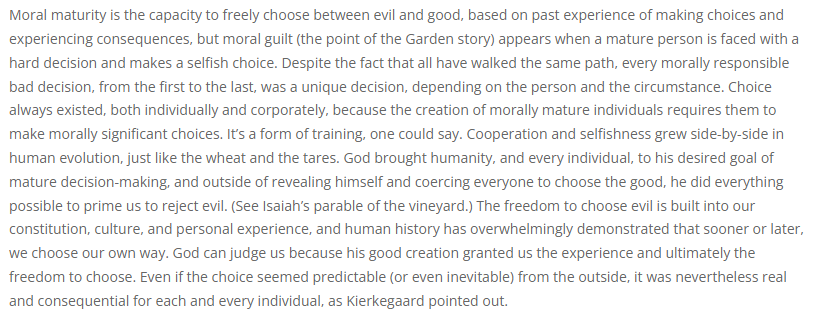That’s fine. We’re responsible for our own beliefs, but I’m one who thinks Christian theology is done in community. No one person has “the” right answer.
Sorry for the confusion. That article was a review of @LorenHaarsma’s book. Call me old-fashioned, but I think a book review should be about the book, not my own views. We got into that in the original thread (here), or you can read my writing on the subject:
Short version
Long Version
No, I’m defining it as the first (original) sin, ha’adams and ha’issah’s “transgression.” What was it? It certainly wasn’t eating a literal fruit in a literal garden, or violating a single command.
Sure. I’m not saying human sin is inherited, or that we’re all sinful because we descend from A&E. I’m saying A&E represent the universal human experience, collectively and individually. That’s the definition of a literary archetype. In short, there is both individual and corporate (systemic) sin. Humanity as a whole achieved maturity when it acquired the knowledge of good and evil, just as every individual human person does. As I said previously, knowledge passed from generation to generation is the definition of “culture.” We’re not born “totally depraved.” We’re born into a morally ambiguous situation with both good and evil examples.
Hope that explains where I’m coming from.
Addendum: Yes, Jesus died to save each of us from our sins, but his resurrection is a foretaste of the “renewal of all things.” The Christian hope in the resurrection involves all of God’s creation, not just our individual salvation.
